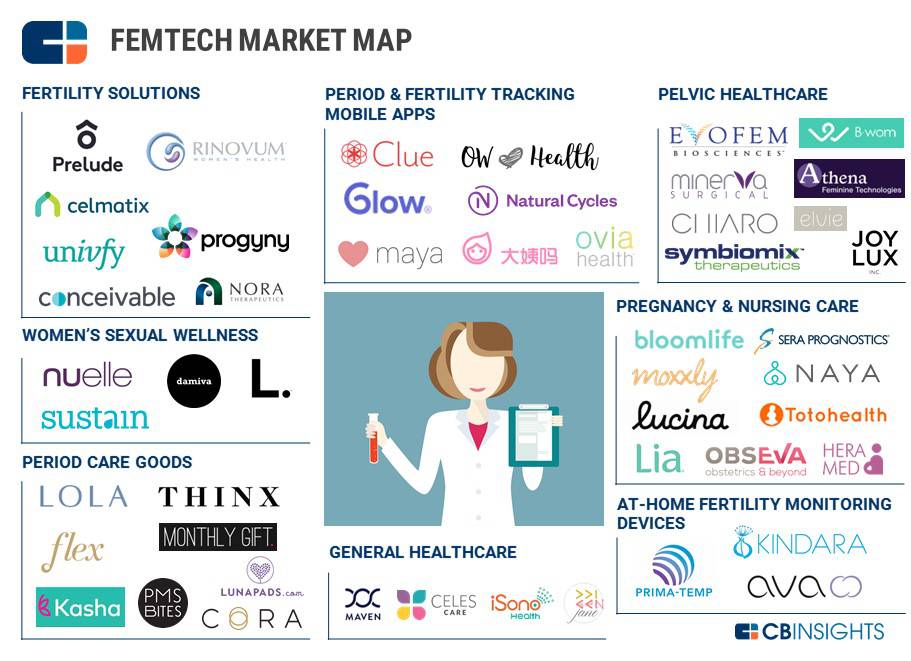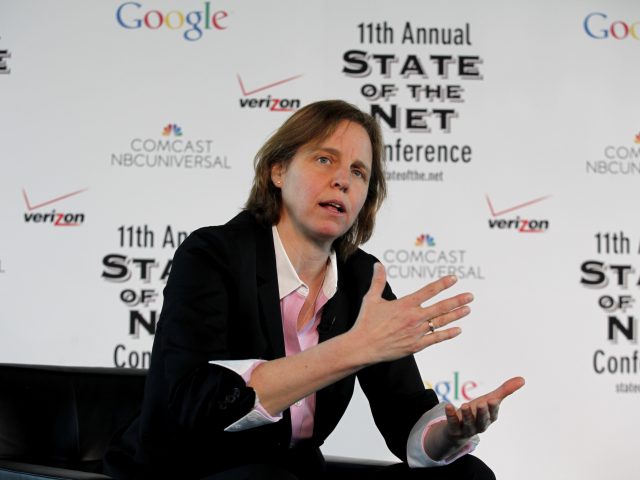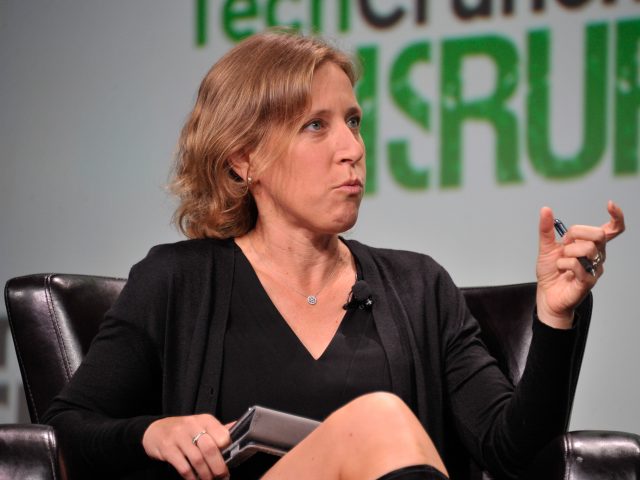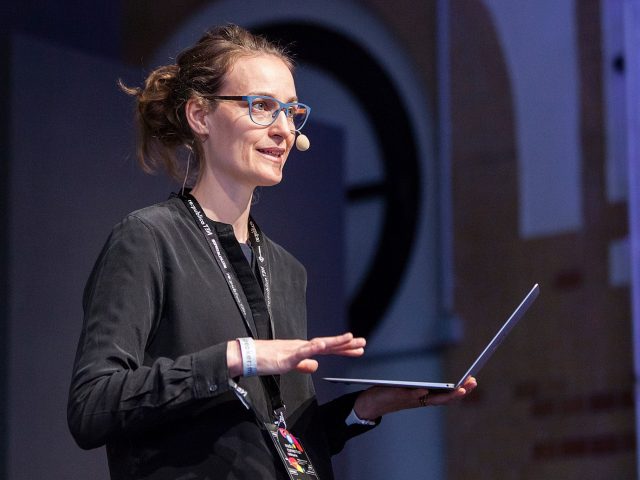No women no tech…

Julia Le (left) and Emilie Foss Evensen (right), the two out of the three co-founders of Women Techmakers Copenhagen (Photo: David Fulop)
The founders of Women Techmakers, a Google-funded initiative and student society at CBS, believe that companies in the technology sector have a lot to gain by employing women. The organization encourages women from CBS to get their hands dirty and get in touch with tech trends because they want them to remain competitive in the struggle to find a job.
“If you want to differentiate yourself as a firm from the others, maybe you should consider having more women. Because then you can think in new directions that others might not be thinking in. Companies that mostly hire men can be innovative, but maybe the innovations are more alike. And the companies that hire more women will differentiate themselves with different kinds of innovation,” says Julia Le, co-founder of Women Techmakers at CBS and MSc E-business student.
There are many examples of women who have contributed towards the further development and innovation of technology. For example, Belinda Johnson, who untangles complex regulatory barriers for Airbnb, and Ida Tin, co-founder of the menstrual and fertility tracking app, Clue, which is used by over 2.5 million women around the globe.
It's not about putting people into boxes or letting your gender define what your talents are
Emilie Foss Evensen, Women Techmakers Copenhagen
According to Emilie Foss Evensen, another co-founder of Women Techmakers at CBS, more women need to get involved with technology if they want to have a bigger impact on certain industries.
“A lot of women are into healthcare, and if some of those women could divert that interest into something that is tech related and cause some sort of innovation in healthcare technologies, then that could probably help more people than if they were working as a traditional healthcare provider,” she says and Julia Le adds:
“For example, the Clue app, it would be a little bit weird if a guy were to make this app. Because, how would he truly understand how it feels like to be a woman, to have these things happening to your body? Whereas from a female perspective, you really have the insights from your body.”
But the two co-founders do not believe that women should be restricted to femtech. They want women to get involved with technology so that they can stay ahead of the game and remain competitive in the labor market.
“Everything is moving towards digitalization in some sort of way. So, even if you are thinking, ‘technology is not a field that I would consider,’ you pretty much have to consider it within the next ten years. It’s better to get out there now and learn it while you can still get on board before you have to go to that interview and say, ‘I know what augmented reality is,’ or ‘I know the basics of programming.’

A market map showing some of the companies working in femtech (Credit: CBInsights)
Keep up or get left behind
Big Data, blockchain, machine learning, ad/martech, and internet of things (IoT), are all tech trends that are in high demand. Emilie Foss Evensen and Julia Le consider some of these technological trends to be applicable to business students as well.
“Companies use advanced analytics to map trends, or behaviors, or anything that can enhance their own product. And that’s something that’s extremely applicable for the next five to ten years. With technology, it comes down to a very consumer mindset. Now, it’s all about the consumer not about the firm anymore. It’s about making sure the consumer feels special,” says Julia Le and Emilie Foss Evensen adds:
“Because, for sure there are companies out there that can personalize and meet the demands of the customers, but if you want to be competitive you have to get on it. And these are the skills that most companies are going to be asking for when we graduate.”
Some women may feel like they don't have total control of what's going on within tech
Emilie Foss Evensen, Women Techmakers Copenhagen
Getting your hands dirty with tech
The two co-founders of Women Techmaker’s CBS chapter noticed that women tend to be more insecure about getting their hands dirty with technology. This can also be seen in their study program, MSc E-business, where 40 percent of the class consists of women. Julia Le describes a situation where women showed signs of doubt and uncertainty in their tech-related school work.
“When we were doing a programming course in Java, you could see that the men asked the questions and asked for help when they didn’t know how to do it. But the women were not asking questions unless they were absolutely sure that what they wrote was correct,” says Julia Le and Emilie Foss Evensen adds:
“Some women may feel like they don’t have total control of what’s going on within tech, or maybe they’ll feel a bit silly asking certain questions.”



And this is part of the reason why Women Techmakers was founded, explain the two co-founders. According to them, the organization wants to foster a friendlier environment for women to explore the opportunities that technology has to offer.
“We wanted to make sure that it’s a safe or less intimidating environment for them to come into. We just want to make sure that women feel welcomed and feel like they can ask all kinds of questions,” says Emilie Foss Evensen and Julia Le adds:
“Especially in a field like technology, which might seem so far away, like another galaxy for some women. We want to encourage them to just try to come and see if this is of interest to them. Maybe you’ll actually be really good at this or that topic. But it’s hard to figure that out when you’re not even introduced to this whole field.”
It’s not about boxes
The two co-founders consider there to be subtle differences in the way women approach technology and think that companies can benefit from this.
“This may be generalizing, but I think that women take more empathetic decisions. And this could mean that they have a more consumer-centric approach to tech, which could result in a great innovation,” says Julia Le.
However, Emilie Foss Evensen notes that Women Techmakers does not want to make any concrete, polarizing distinctions between men and women.

“For us, it’s not about putting people into boxes or letting your gender define what your talents are, we just believe that there are some things that women are good at, and some that men are good at. And we should celebrate the differences and encourage them rather than just say, we’re all alike and we should just all be approached in the same way,” she says and Julia Le adds:
“When you know your weaknesses and your strengths, then you can work together in that way. You can put teams together where one is good at one thing and the other one is good at another thing. Because if you only have teams with people that are like-minded, you’ll only get one kind of product out of it.”
And according to Emilie Foss Evensen, that is the system that they are trying to implement at Women Techmakers’ CBS chapter.
“We don’t try and make everyone do everything. We actively ask, ‘What is it that you’re good at, and What is it that you want to do?’ and then we just let them do that,” she says.

































































































































Comments